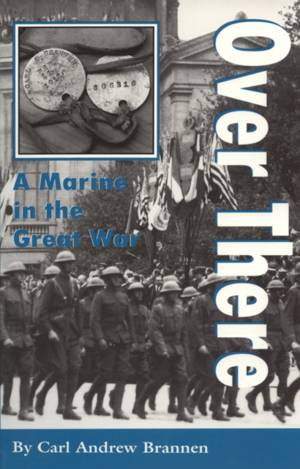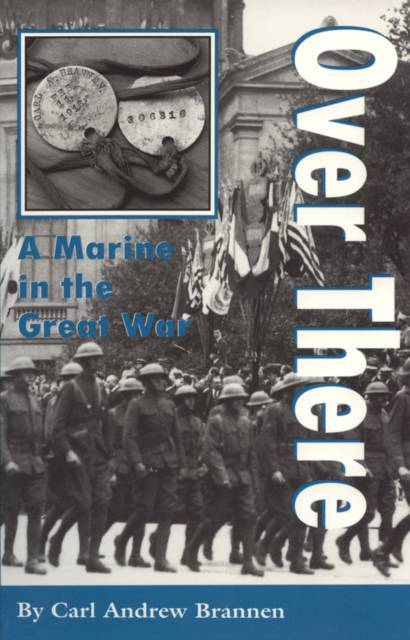
- Retrait gratuit dans votre magasin Club
- 7.000.000 titres dans notre catalogue
- Payer en toute sécurité
- Toujours un magasin près de chez vous
- Retrait gratuit dans votre magasin Club
- 7.000.0000 titres dans notre catalogue
- Payer en toute sécurité
- Toujours un magasin près de chez vous
Description
"It does not take long to tell the difference in the sound of the explosion of a gas, shrapnel, or high explosive shell," Carl Andrew Brannen said of his introduction to trench warfare. As that nineteen-year-old marine from Texas had quickly learned, the first big war of the twentieth century promised new horrors on the battlefield. In this intense journey through the beginnings of modern war, C. A. Brannen's memoirs and battlefield snapshots are complemented with a unique set of contemporary and retrospective photographs. Seventy-five years after World War I, the author's son retraced his father's footsteps across France. The photographs he took on those erstwhile battlegrounds evoke the ghosts of the past and allow father and son to march together through the battlefronts of Belleau Woods in the Chateau-Thierry sector, Soissons, Pont-a-Mousson, St. Mihiel, Blanc Mont Ridge, and the Meuse-Argonne battle. J. P. Brannen's afterword to Over There is a moving tribute to his family's veterans. Over There describes the day-to-day obstacles Brannen and his fellow marines faced during training, troop movement to France, and mortal combat. Brannen served in every major action of the 4th Marine Brigade, which saw more fighting than any other American unit. Serving as rifle grenadiers at St. Mihiel, he and a companion broke up a German attack in an action largely ignored in published accounts of the battle. Although he was wounded at Blanc Mont, Brannen was able to continue on with the 80th Company through the Meuse-Argonne campaign to the armistice. He served in the occupation of the Rhineland and, at its end, earned a place in Pershing's Honor Guard. The Brannens' story should fascinate all those interested in World War I and touch the hearts of other families who have been touched by war. With the added scholarship of the late military historian Rolfe L. Hillman Jr., and of Peter F. Owen, a Marine Corps officer, Over There also is a valuable contribution to the military history of World War I. The late carl andrew brannen was a student at Texas A&M when he joined the marines. After the war, he earned two degrees in history and had a long career as a schoolteacher and administrator. J. P. Brannen is a retired scientist in Cedar Crest, New Mexico.
Spécifications
Parties prenantes
- Auteur(s) :
- Editeur:
Contenu
- Nombre de pages :
- 192
- Langue:
- Anglais
- Collection :
- Tome:
- n° 1
Caractéristiques
- EAN:
- 9780890967911
- Date de parution :
- 19-01-96
- Format:
- Livre broché
- Format numérique:
- Trade paperback (VS)
- Dimensions :
- 141 mm x 215 mm
- Poids :
- 272 g

Les avis
Nous publions uniquement les avis qui respectent les conditions requises. Consultez nos conditions pour les avis.






